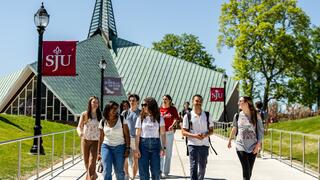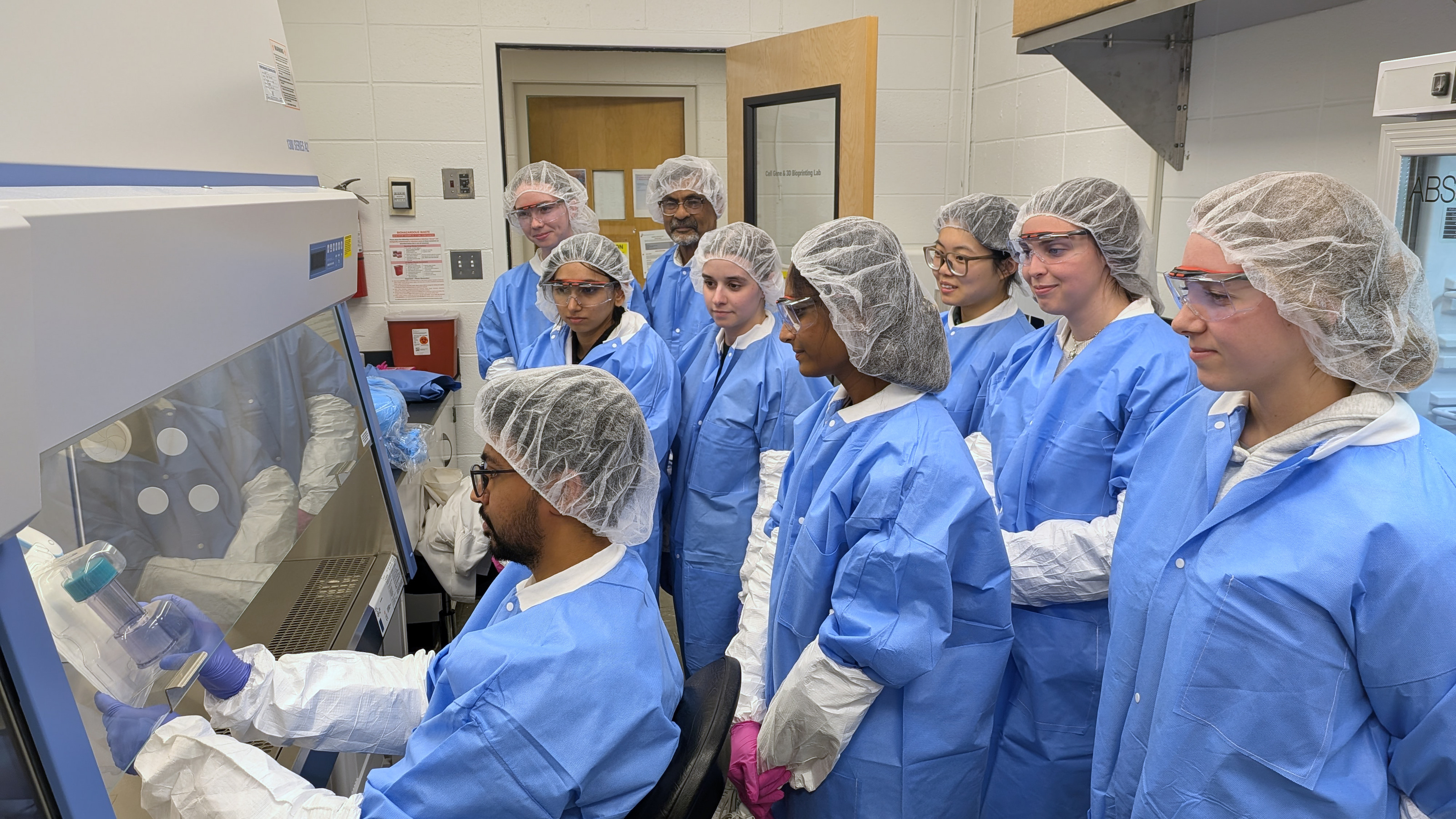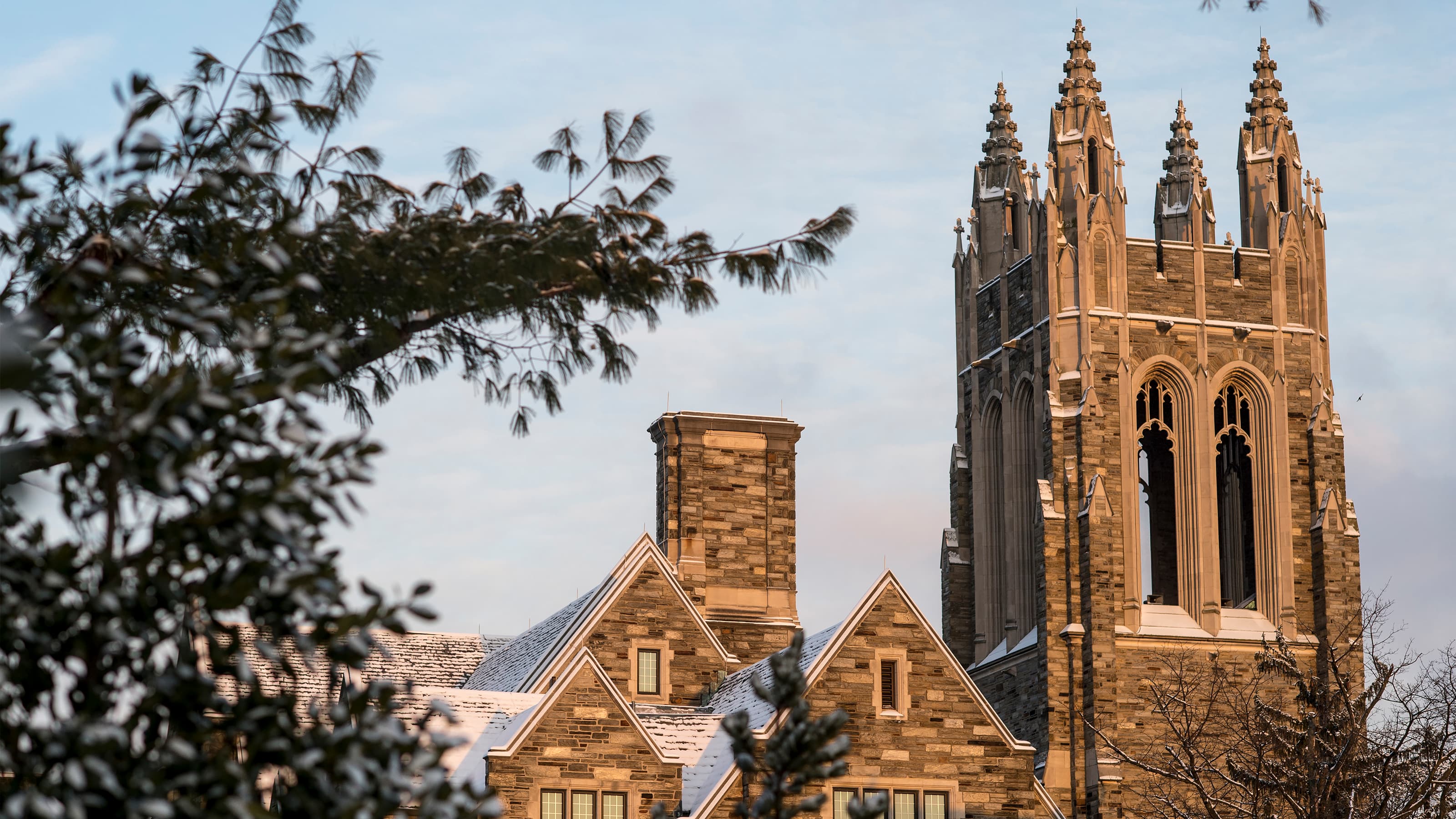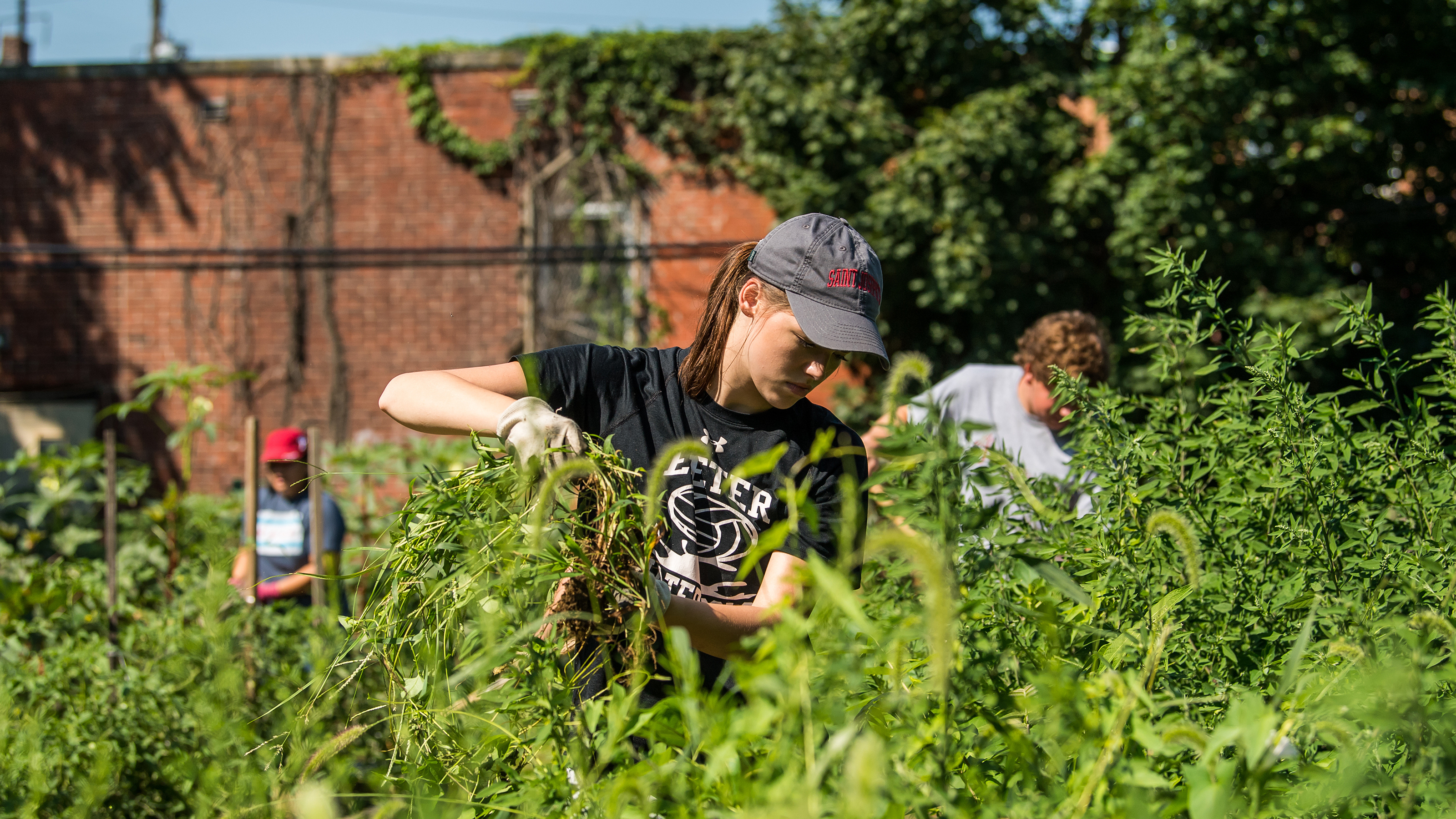Saint Joseph’s University Named FirstGen Forward Institution
The University joins nearly 500 institutions nationwide in their commitment to helping first-generation students succeed throughout their higher education careers.

First-generation college student DeAnna Capaldi, BS ’27, remembers how overwhelmed she felt applying to colleges. She spent hours reviewing articles and TikToks, attending virtual information sessions and campus visits, and doing as much research as she could to make sure she was prepared for her next four years.
When it came down to making a decision about where to go to school, it was the support she received from Saint Joseph’s University that sealed the deal.
“I wanted to go somewhere I felt supported, and the resources St. Joe’s provided really validated my decision,” says the now-president of SJU’s chapter of Tri-Alpha, the first-generation college student honor society.
There are hundreds of first-generation students like Capaldi who have received support from Saint Joseph’s throughout their higher education journeys. This August, in recognition of the University’s commitment to advancing the success and experiences of first-generation college students, the University was named a member of the FirstGen Forward Network.
The nonprofit works to accelerate the success of first-generation college students in their education, careers and lives. Saint Joseph’s is one of 60 new members to join the network of now 489 member colleges and universities nationwide, representing 49 states and the District of Columbia.
“We are honored to have been selected as a member of the FirstGen Forward Network,” says Elizabeth Lee, PhD, associate professor and assistant dean for internships and experiential learning at Saint Joseph’s. ”Our membership not only affirms our existing efforts to support first-generation students but it also reinforces our commitment to expanding our resources in the years ahead.”
Network membership helps institutions scale holistic first-generation student success, transforming the student experience, strengthening academic and co-curricular outcomes, and building inclusive institutional structures. Members engage in monthly workshops, peer-learning opportunities, and professional development sessions while contributing to a nationwide knowledge-sharing community.
“Being selected as a FirstGen Forward Network member is both an honor and a call to action,” says Kevin Kruger, PhD, interim president and CEO of FirstGen Forward. “SJU joins a growing movement of institutions and professionals who are committed to advancing access, sharing best practices, and driving systemic change to ensure first-generation students succeed.”
First-generation college students, or students whose parents or guardians did not attend a four-year institution themselves, often experience obstacles when applying to or enrolling in college. Parents may not be able to offer guidance on things like preparing for the SATs, applying for financial aid, or adjusting study habits for college simply because they haven’t experienced these life events themselves.
“Often, first-gen students feel like, ‘Oh, everyone else seems to know what’s going on,’ without realizing that backstage, they're getting advice from family and friends,” says Lee.
Our membership not only affirms our existing efforts to support first-generation students but it also reinforces our commitment to expanding our resources in the years ahead.
Elizabeth Lee, PhD
Associate Professor, Assistant Dean for Internships and Experiential LearningStatistically, first-generation college students are also more likely to come from lower-income backgrounds than their peers, meaning they may end up working extensive hours to support the cost of college or living.
“In addition to that added stress, working while going to school precludes students from a lot of other activities closely linked with positive academic outcomes, like a sense of belonging,” says Lee. “If you’re working a lot and going to class, you’re less likely to be able to join a club, spend time with friends, go to office hours or study abroad.”
At Saint Joseph’s, students receive high-touch advising support and are invited to attend Orientation sessions tailored to first-generation students’ needs. The University also recently piloted a mentorship program through which first-generation faculty and staff are paired with undergraduate students.
“My mentor, Dr. McCleary, is the best,” says Capaldi. “We wound up having so much in common and it made me feel so much more secure having another support system on campus who knew exactly what I was going through. I frequently email him with updates on any first-gen accomplishments. I think this initiative is so beneficial for both parties.”
Lee says that the ultimate goal for the program is to develop a nested mentorship model so that — in addition to the faculty and staff pairings — newer first-generation students are also connected with upper-level first-generation students. She also adds that the University is in the process of creating a new student organization that will focus on camaraderie and building a sense of belonging among first-gen students.
To support financial need, the University offers 10 different scholarships, including the Hawk Hill 1st Generation Scholarship, which anyone can support.
“First-generation students offer a unique perspective and drive that enriches our University community,” says Tom Fithian, BS ’98, MBA ’07, assistant vice president of advancement. “Our goal is that financial need never becomes a barrier to a student’s educational journey.”
Saint Joseph’s University remains steadfast in its commitment to empowering first-generation students — now and for generations to come.
“Through the application process, it was clear that Saint Joseph’s is not only committed to supporting first-generation students, but also prepared to invest in long-term, strategic efforts that create environments where these students can truly thrive,” says Stephanie J. Bannister, PhD, vice president with FirstGen Forward.
To learn more about FirstGen Forward and the Network, visit firstgenforward.org.



